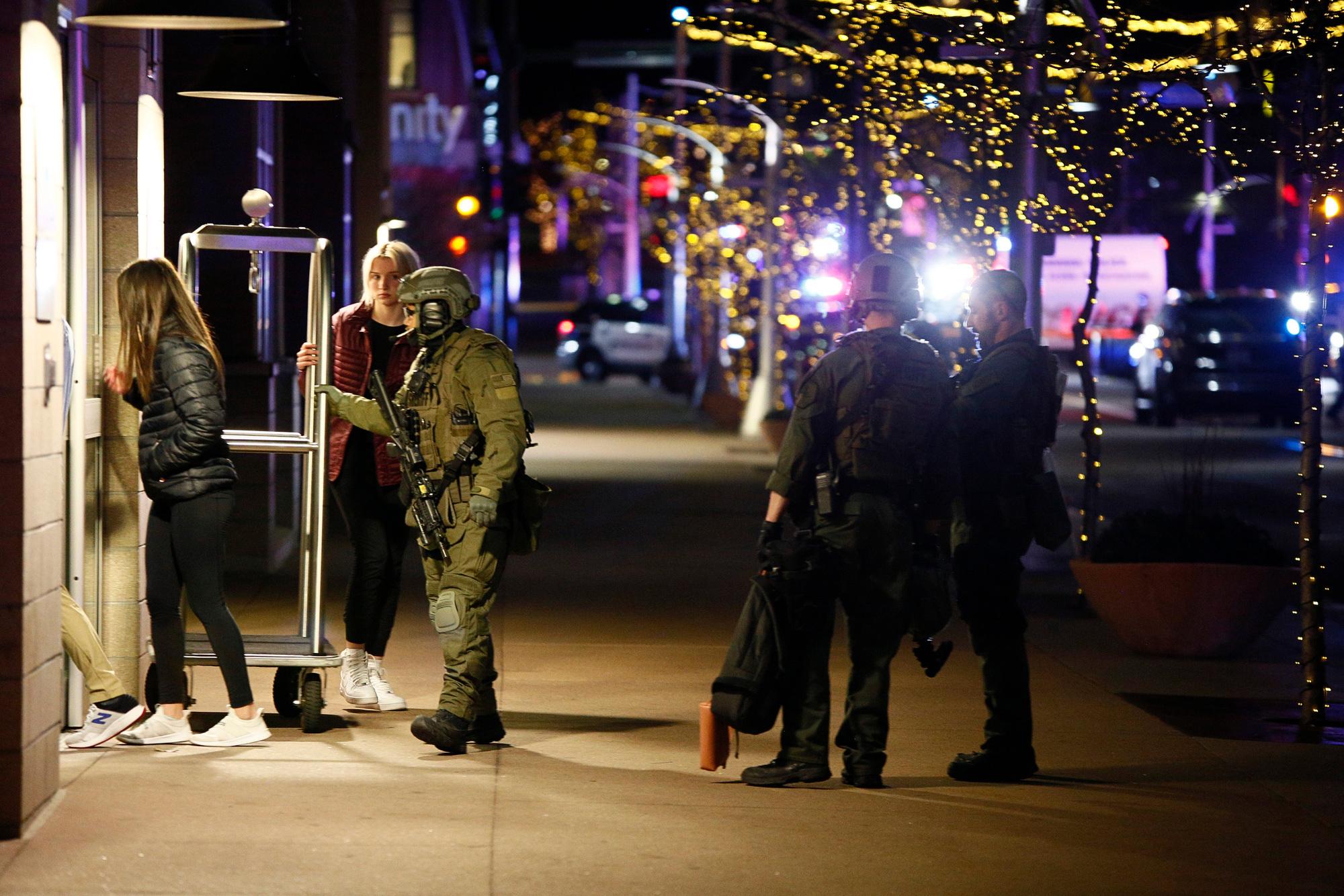Last year, a letter sent to Denver authorities warned that a man with local connections could be planning a violent act. Last week, that man -- Lyndon McLeod -- killed five people in a shooting spree across Denver and Lakewood.
"He has a motive, he has the means, and he has put a target date on his 'project,' which makes it a sick, but effective plan," read a letter dated Jan. 2021 from Andre Thiele, who provided a copy of the document to Denverite this week.
"I cannot in good conscience say that he will act with certainty. But I can say that IF he should act, the result would be devastating. He then would stop at nothing," the document warned.
Denver police officials confirmed that they had received the letter from Thiele last January, along with a list of potential contacts. The Denver Post first reported on the letter.
Denver police investigated the tip, including a possible connection to fraud. But investigators found "there was not sufficient evidence to file criminal charges or a legal basis for monitoring McLeod at the time," wrote spokesperson Doug Schepman in an email.
Thiele knew of the gunman through his self-published novels, which had attracted a following in male-dominated corners of the internet. Thiele said he briefly corresponded with a police detective in the days after sending the letter and that a mutual acquaintance also heard from law enforcement. Police chief Paul Pazen said his department looked into the gunman in 2020 and 2021
The gunman wasn't living in Denver at the time of his contacts with police; the department did not contact any other agencies about the investigation and couldn't find sufficient grounds to try to take away his weapons under the red flag law, officials said earlier.
Thiele said he first encountered the gunman under his pen name, Roman McClay, on Twitter around 2018. The gunman was just beginning to self-publish a trilogy of books.
"He had a very unique Twitter feed," recalled Thiele, an emergency medical worker in Mainz, Germany. "He was talking about his life on top of a mountain ... and it was really really impressive what he showed of his life."
Over the next two years, Thiele would be drawn deep into the author's orbit in the digital "man-o-sphere." Thiele was attracted to the "red pill" online circles because of discussions about sexual dynamics between men and women, he said.
But Thiele soon realized, he said, that the gunman's work was filled with violent imagery and hate symbols, including a version of the "bolts" symbol used by certain Nazi forces, which appeared on the gunman's book covers.
At first, he said, he didn't realize how extreme McLeod was because American culture is saturated with violence and extreme images. He also did not realize the connection between the author and his murderous character; the character used the author's real name, while the books were published under a pen name.
Meanwhile, the shooter was gaining a following online -- and leaving potential signs of his future killings, which largely targeted people whom he knew through his endeavors in the tattoo and marijuana industries.
After a business failure that he blamed on others, the shooter "went to a very dark place and I had all kinds of ideas of what I was gonna do in order to make this right," he told the YouTube host Zuby in a since-deleted 2019 interview.
"I said, 'Look, if this book thing doesn't work, you can go back to plan A.'"
In the summer of 2020, he launched a Patreon where fans could give him money to support an audio edition of the books. Supporters -- including Thiele -- were allowed to join a Telegram chat group with him.
"This book was a riddle to me. I wanted to solve the riddle," Thiele said. "At this point I still believed that this was a novel, that this was literature."
Up to about 80 people joined the group, Thiele estimated, and the gunman himself often made appearances. Over the months, Thiele said he grew increasingly disturbed by the gunman's statements, which often focused on the idea that "war" is coming and embraced societal collapse.
"I realized more and more that this was basically just about him -- about his urges and his thoughts -- and his dark and destructive nature," Thiele said. He also realized, he said, that he was lying about many details of his life.
The chat group eventually broke up late in 2020 as people raised concerns about the behavior of the author, Thiele said. A year later, Thiele learned about the shooting from notifications on his phone. YouTube creators were talking about the gunman and his path through the "man-o-sphere."
Thiele said the shootings were the terrible and tragic manifestation of the gunman's violence-obsessed philosophy. But his motives remain unclear, and police have offered only limited public comments while they investigate.
"He signed this book with blood," Thiele said.
He's still asking himself what he could have done differently.
"One of the biggest mistakes I made is that I took things too lightly," Thiele said. "This was all there from the beginning."
Do you know more about the shooter's history? Email the reporter
Editor's note: This article was updated on Jan. 5, 2022 with comment from the Denver Police Department.












